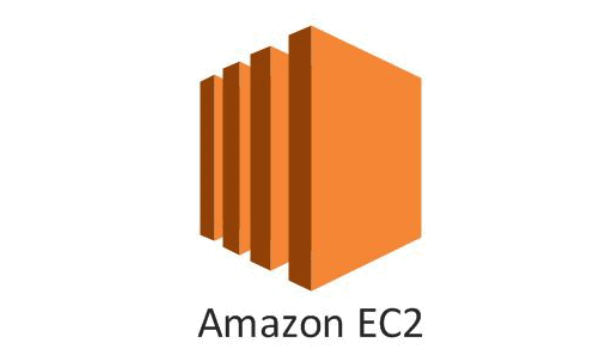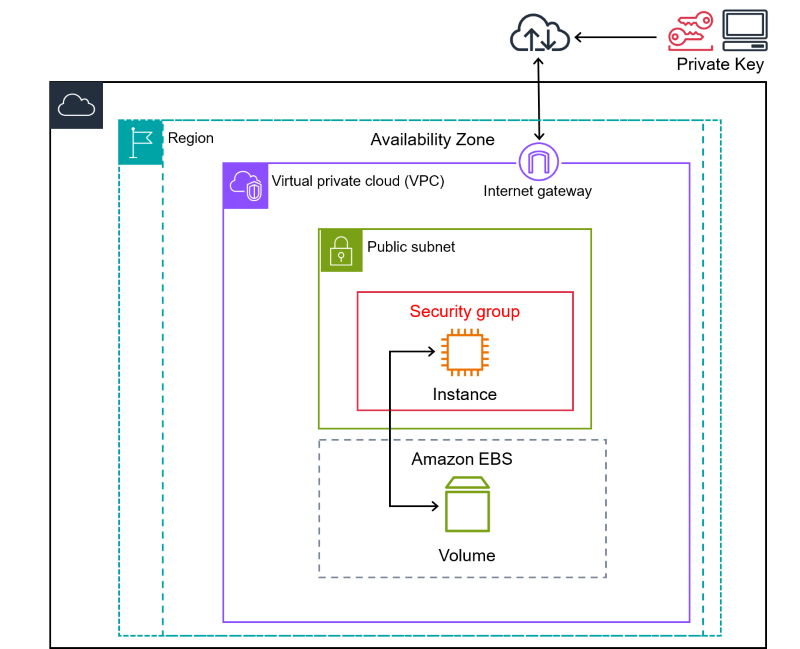Day-4: our Gateway to Cloud Computing Excellence(EC2) (part-1)
 Srikanth Vaddeneni
Srikanth VaddeneniTable of contents
- What is Amazon EC2?
- Use Cases:
- Develop for Apple Platforms:
- Build, test, and sign on-demand macOS workloads. Access environments in minutes, dynamically scale capacity as needed, and benefit from AWS’s pay-as-you-go pricing.
- Run Cloud-Native and Enterprise Applications:
- Deliver secure, reliable, high-performance, and cost-effective computing infrastructure to meet demanding business needs.
- Amazon EC2 on the Free Tier:
- Features of Amazon Ec2:
- Understanding Amazon EC2:
- Key Features and Benefits:
- Conclusion:
Introduction: In today's fast-paced digital realm, businesses need computing solutions that are not just powerful but also flexible. Amazon Elastic Compute Cloud (EC2) is a key player in this domain, offering a versatile cloud computing service that caters to a myriad of needs.
This blog post will unravel the basics of Amazon EC2, shedding light on its features, advantages, and how it's reshaping the way businesses operate in the modern period.
What is Amazon EC2?

Amazon Elastic Compute Cloud (Amazon EC2) is a web service that provides secure, resizable computing capacity in the cloud.
Access reliable, scalable infrastructure on demand. Scale capacity within minutes with an SLA commitment of 99.99% availability.
Optimize performance and cost with flexible options like AWS Graviton-based instances, Amazon EC2 Spot instances, and AWS Savings Plans.
Use Cases:
Develop for Apple Platforms:
Build, test, and sign on-demand macOS workloads. Access environments in minutes, dynamically scale capacity as needed, and benefit from AWS’s pay-as-you-go pricing.
Run Cloud-Native and Enterprise Applications:
Deliver secure, reliable, high-performance, and cost-effective computing infrastructure to meet demanding business needs.
Desktop Virtualization:
EC2 instances can be used for desktop virtualization, enabling users to access virtual desktops from anywhere. This is useful for scenarios where users need consistent and secure access to their desktop environments from various devices.
Web Hosting: EC2 is frequently used for hosting websites and web applications. Its scalability allows businesses to handle varying levels of web traffic effectively. By adjusting the number of instances based on demand, companies can ensure their websites remain responsive and available to users.
Amazon EC2 on the Free Tier:
Amazon EC2 offers a Free Tier, which is an excellent opportunity for users to explore and experience cloud computing without incurring costs within certain usage limits. The EC2 Free Tier allows users to access a limited amount of computing resources each month for free, making it an attractive option for individuals, startups, and small businesses. Here's an overview of what the EC2 Free Tier includes:
FREE TIER OFFER DETAILS:
12 MONTHS FREE
750 hours per month of Linux, RHEL, or SLES t2.micro or t3.micro instance dependent on region
750 hours per month of Windows t2.micro or t3.micro instance dependent on region
The basic architecture of an Amazon EC2 instance deployed within an Amazon Virtual Private Cloud (VPC).

In this example, the EC2 instance is within an Availability Zone in the Region. The EC2 instance is secured with a security group, which is a virtual firewall that controls incoming and outgoing traffic. A private key is stored on the local computer and a public key is stored on the instance. Both keys are specified as a key pair to prove the identity of the user. In this scenario, the instance is backed by an Amazon EBS volume. The VPC communicates with the internet using an internet gateway.
Features of Amazon Ec2:
Amazon EC2 provides the following high-level features:
Instances
Virtual servers.
Amazon Machine Images (AMIs)
Preconfigured templates for your instances that package the components you need for your server (including the operating system and additional software).
Instance types
Various configurations of CPU, memory, storage, networking capacity, and graphics hardware for your instances.
Key pairs
Secure login information for your instances. AWS stores the public key and you store the private key in a secure place.
Instance store volumes
Storage volumes for temporary data that is deleted when you stop, hibernate, or terminate your instance.
Amazon EBS volumes
Persistent storage volumes for your data using Amazon Elastic Block Store (Amazon EBS).
Regions, Availability Zones, Local Zones, AWS Outposts, and Wavelength Zones
Multiple physical locations for your resources, such as instances and Amazon EBS volumes.
Security groups
A virtual firewall that allows you to specify the protocols, ports, and source IP ranges that can reach your instances, and the destination IP ranges to which your instances can connect.
Elastic IP addresses
Static IPv4 addresses for dynamic cloud computing.
Tags
Metadata that you can create and assign to your Amazon EC2 resources.
Virtual private clouds (VPCs)
Virtual networks you can create that are logically isolated from the rest of the AWS Cloud. You can optionally connect these virtual networks to your own network.
Understanding Amazon EC2:
1. EC2 Essentials:
At its core, Amazon EC2 is a web service designed to provide scalable computing capacity in the cloud. This means users can run virtual servers, known as instances, with ease. The beauty of EC2 lies in its ability to scale these instances up or down according to demand, giving businesses the agility they need to navigate varying workloads.
2. Instance Variety:
EC2 offers a spectrum of instance types tailored to diverse use cases. Whether you're dealing with high-performance applications, memory-intensive tasks, or data-heavy processes, EC2 has an instance type to match. This diversity empowers users to select the instance type that perfectly aligns with their specific requirements, optimizing both performance and costs.
3. Global Accessibility:
With data centres strategically positioned worldwide, EC2 enables users to deploy instances in multiple regions. This not only ensures low-latency access to resources but also adds a layer of resilience by providing redundancy across different geographic locations.
Key Features and Benefits:
1. Scalability at its Core:
EC2's standout feature is its scalability. Businesses can effortlessly adjust their computing capacity in response to demand fluctuations. This elasticity ensures optimal performance without the burden of overprovisioning resources.
2. Pay-as-You-Go Convenience:
EC2 operates on a pay-as-you-go model, meaning users are billed based on the computing capacity they consume. This approach eliminates the need for hefty upfront investments in hardware, making high-performance computing accessible even for startups and small businesses.
3. Security and Compliance Assurance:
Security is a top priority for EC2. It provides a suite of tools and features, including Virtual Private Cloud (VPC), identity and access management (IAM), and encryption options, to help users build secure and compliant environments for their applications.
4. Tailored Customization:
EC2 instances are highly customizable. Users can choose the operating system, instance type, storage options, and networking configurations. This level of flexibility ensures EC2 can cater to a wide array of workloads, from basic web applications to intricate, data-intensive processes.
Conclusion:
In the dynamic landscape of cloud computing, Amazon EC2 emerges as a beacon of innovation. Its scalability, cost-effectiveness, and rich feature set make it an indispensable tool for businesses of all sizes and industries. As technology advances, Amazon EC2 remains at the forefront, empowering businesses to harness the full potential of cloud computing and drive success in the digital era.
Subscribe to my newsletter
Read articles from Srikanth Vaddeneni directly inside your inbox. Subscribe to the newsletter, and don't miss out.
Written by

Srikanth Vaddeneni
Srikanth Vaddeneni
Proficient in a variety of DevOps technologies, including AWS, Linux, Python, Shell Scripting, Docker, Terraform, and Computer Networking. I have a strong ability to troubleshoot issues.